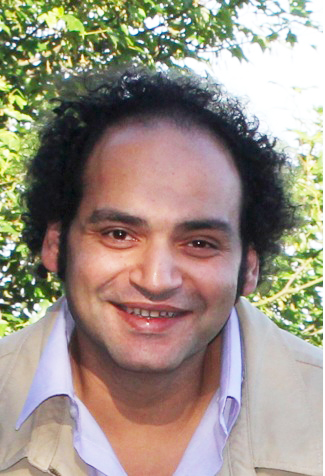By Philip Whitfield
CAIRO: A juicy tidbit in The Iron Lady biopic playing at Citystars. All het up, Margaret Thatcher harps on to a hapless hanger-on: While England looks back on history America looks forward with a philosophy.
Ignominiously Egypt neither respects its history nor has faith in ethics to get out of the mess. Money-grubbing rules.
Mrs. Thatcher’s carefully coiffured locks and deftly, deliberately deepened vocal gravitas summoned a revolution more profound than anything that’s erupted thus far out of the Arab Awakening.
Don’t go all wobbly on me now, George, Thatcher scolded the first President Bush as Iraq paid attention. Hand-in-hand Thatcher and Reagan made haste to bring the Berlin Wall down and topple the Soviet regime.
In Egypt today, it seems all that tough talk promising to hurl the book at the criminals who looted the nation’s coffers for decades was whistling in the breeze. Rather than tossing them in jail and throwing the keys away, the criminals are picking the locks.
Reading between the lines, I get the impression justice is for sale if the price is right. One story after another is surfacing of negotiations to let the villains off if they can pony up enough cash.
You have to be wary about what you read nowadays. The newspapers aren’t as bold as before. But you can be pretty sure you’re on to something when both the leading Islamist parties are jumping up and down with ants in their pants.
According to Al-Masry Al-Youm, the Muslim Brotherhood’s Freedom and Justice Party and the Salafi-led Nour Party rejected a proposal to grant amnesty to convicts offering to give up their wealth if the government dropped the charges.
Apparently Ahmed Ezz, the loathsome lackey of Gamal Mubarak is among the crooks waving a get-out-of-jail card through the bars of his cage.
CNN ran a story about Egypt’s finance minister considering financial offers made by imprisoned members of Mubarak’s regime to resolve cases of corruption and illegal profiteering brought against them.
If the proposed deals are accepted, Ezz, the former tourism minister Zoheir Garana and the former housing minister Ahmed Maghraby would be freed without penalties or trials.
Apparently The Supreme Council of the Armed Forces amended the investment law on Jan. 3, 2012, two weeks before the first session of parliament. Their amendment allowed suspects in graft, embezzlement and corruption cases to pay back ill gotten gains using assets, real estate, cash, or land in return for dropping the charges.
That’s like being caught robbing a bank and then being told everyone would forget about it if you put the money back. It doesn’t matter that you might have financed half a dozen more bank robberies with the cash you stole in the first place.
Just to save the police going to the trouble of finding you and your money, the villains are offered a deal that wipes the slate clean.
SCAF and the Minister of Finance should be ashamed of themselves. Have they no shame?
Hala Mahmoud, a civil rights activist, says the law is a farce, orchestrated by SCAF to their benefit. I am sure members of the ruling council have mutual interests with those thieves behind bars, she says. So they came up with this decree that defies the constitution to save themselves.
Why don’t they allow drug dealers to do the same?
Good question. The wheeler-dealers the country is focusing on are the Mubaraks.
The Illicit Gains Authority found Suzanne Mubarak siphoned off money intended for charities and deposited it into her private bank account, drawing on it for several years, knowing her actions were in violation of NGO laws.
She comes and goes, hospital and prison visiting, unencumbered by an electronic ankle tag. Her husband is still in a hospital and her sons are creating new records for delayed justice, enjoying take-away from the Four Seasons.
What kind of justice is that?
George Bernard Shaw said the best reformers the world has ever seen are those who commence on themselves.
Historians tend to cite the ancient Greeks for bunching together the separate categories of law: constitutional, legal, religious, moral and conventional under one catchall namos, as they described it.
That enabled the oligarchs of the day to slap down revolutionaries under the generalization of treason or conspiracy.
The Greeks were able to close their eyes to what we’d regard nowadays as conscience crimes, covering a wide range of ideals, obsessions and eccentricities.
Egypt’s jumbled-up mix of law seems to favor paying off actors in a criminal court drama as if they were litigants in a civil action. We’ve seen families of murder victims accept cash to withdraw their complaints.
What always seems surprising is the lack of transparency. A group of wealthy Saudi Arabian investors in Egypt have reached the end of their tether. Shaikh Abdul Elah Kaki and his family are claiming $350 million from the Egyptian government after the company they bought in 1997 was seized by the state last October.
Their lawyers can’t get any explanation. One says the Administrative Court judgment talks about privatization in Egypt being under the sway of the United States. It looks like a rogue judge who has decided to make an ideological judgment overturning the original investment, he says.
This kind of legal hanky-panky doesn’t bode well for Egypt, the lawyer says.
As well he might.
Good people do not need laws to tell them to act responsibly, while bad people will find a way around the law — Plato.
Philip Whitfield is a Cairo commentator.

